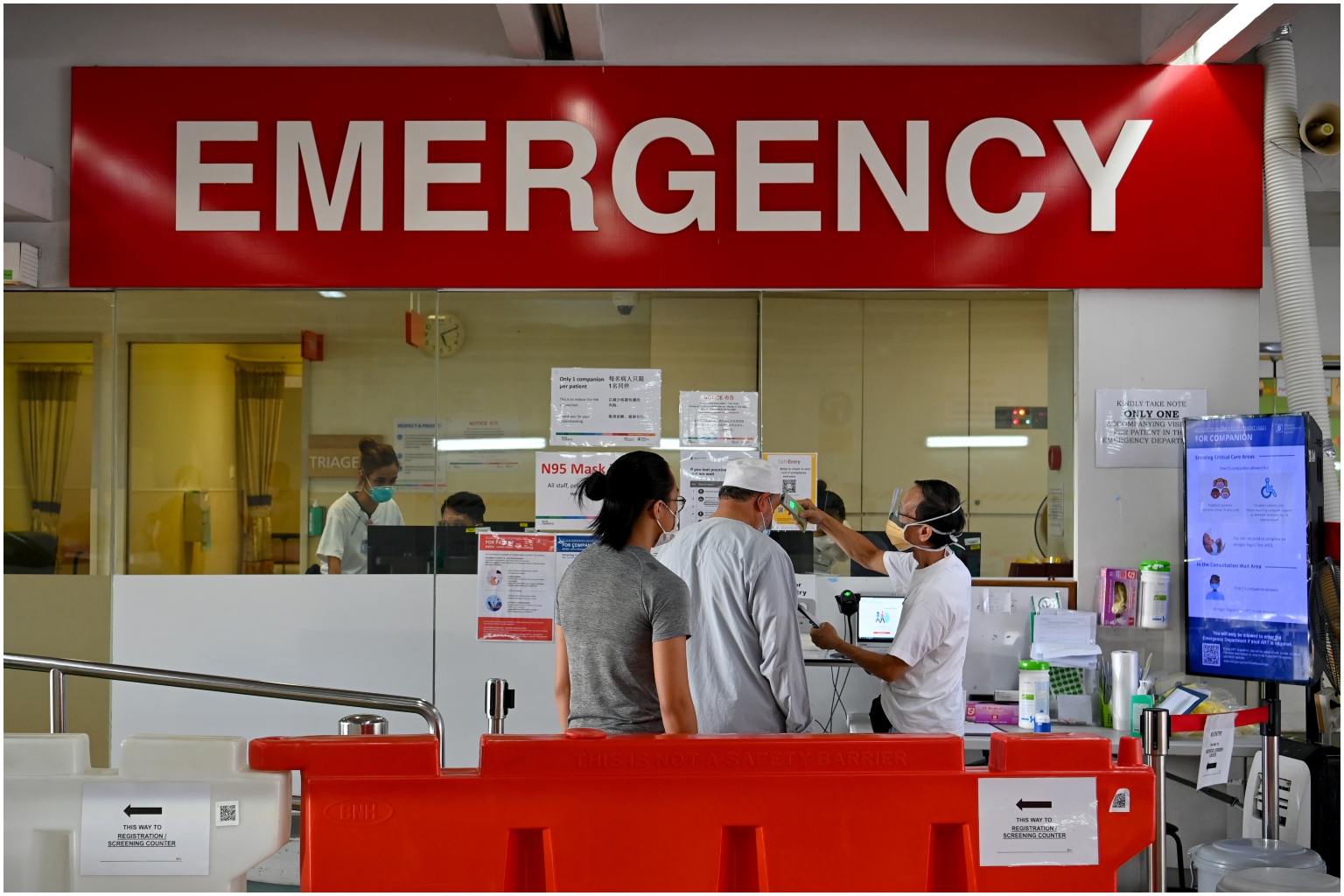Over 8,800 cases of Covid-19 reinfection detected in S'pore since last November
Sign up now: Get ST's newsletters delivered to your inbox

Health Minister Ong Ye Kung acknowledged that while ICU wards had not come under pressure, emergency departments had been busy.
ST PHOTO: LIM YAOHUI
Timothy Goh
Follow topic:
SINGAPORE - Some 8,845 cases of Covid-19 reinfection were detected here from the start of last November to March 25 this year, Health Minister Ong Ye Kung said on Tuesday (April 5).
In a written response to questions from Workers' Party MP He Ting Ru (Sengkang GRC), Mr Ong said that a vast majority of these cases were mild, and that one case required admission to the intensive care unit (ICU) and two deaths were reported.
The majority of reinfection cases took place in patients below the age of 60, said Mr Ong.
Ms He also asked how many days in the last three months each restructured hospital had to activate additional wards for Covid-19 patients and how many patients were admitted to these wards.
In response, Mr Ong said that before the pandemic, there would be about 460 isolation beds in public hospitals. But in the last three months, as a result of the coronavirus, such hospitals operated between 960 and 1,680 isolation beds to care for Covid-19 patients.
Noting that emergency responses are the order of the day during a pandemic, Mr Ong added that the hospitals have had to activate their surge capacity and operate beyond their normal number of wards "very regularly".
Ms He also asked how many days in the last three months emergency departments of restructured hospitals had to close or divert patients away after reaching their capacity, which hospitals or departments were hit particularly badly, and how many days the emergency departments of these hospitals had seen waiting times of more than two, four and six hours before patients could be triaged.
Mr Ong acknowledged that while ICU wards here had not come under pressure in the last three months thanks to Singapore's highly vaccinated population, hospital emergency departments had been busy.
In that time, the Ministry of Health (MOH) approved the diversion of Singapore Civil Defence Force (SCDF) ambulances on seven different occasions from three hospitals - Changi General, Sengkang General and Khoo Teck Puat - as the patients were not in critical condition.
"This helped hospitals manage their capacity at the emergency departments, so that patients with critical conditions can be attended to quickly," said Mr Ong, adding that the duration of these diversions ranged from two to six hours.
Mr Ong also said that all patients presenting at emergency departments are usually triaged within half an hour of registering, to determine the level of priority for emergency treatment.
"Their waiting times for clinical consult vary, depending on the clinical condition of the patient. Critically ill patients are seen almost immediately," he said.

